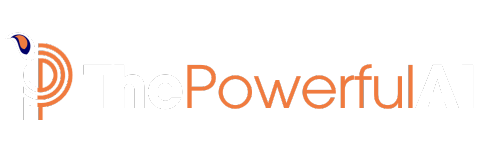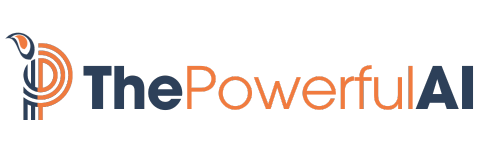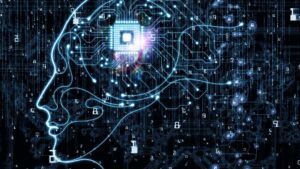Artificial intelligence is used in healthcare to improve patient care and streamline processes. AI-powered chatbots and virtual nurse assistants can help answer patient questions, forward reports to doctors, and schedule appointments.
Additionally, AI can accelerate scientific discoveries and improve the accuracy of clinical data. Patients are increasingly on board with the potential of AI in healthcare, as it can enhance the efficiency and effectiveness of treatments. In the health and wellness industry, AI-generated content can provide personalized workout plans, nutritional recommendations, and stress management techniques.
Overall, AI has a crucial role in the future of healthcare by enhancing patient care and improving outcomes.

Credit: www.theregreview.org
How Ai Is Transforming Healthcare
The use of artificial intelligence (AI) in healthcare is revolutionizing the industry and transforming the way we approach health and healthcare. AI has the potential to enhance patient care, improve diagnoses, optimize treatment plans, streamline administrative tasks, and ultimately improve outcomes. Let’s explore some of the ways that AI is making a significant impact on the healthcare landscape.
Ai Virtual Nurse Assistants
One of the notable advancements in healthcare is the emergence of AI virtual nurse assistants. These AI-powered chatbots, apps, or other interfaces serve as intelligent assistants that can answer patients’ questions about medications, forward reports to doctors or surgeons, and even help schedule appointments with physicians. These virtual nurse assistants enable patients to access medical information and support at their convenience, reducing the need for unnecessary visits to healthcare facilities and allowing healthcare professionals to focus on critical cases.
Ai In Diagnosis And Treatment
Artificial intelligence has been increasingly used in diagnosis and treatment processes, offering valuable insights and improving accuracy. AI algorithms can quickly sift through vast amounts of patient data, including medical records, lab results, and imaging scans, to identify patterns and potential solutions. This has been particularly beneficial in areas such as radiology, where AI systems can detect abnormalities and provide diagnostic assistance. AI-powered systems can also assist healthcare professionals in predicting disease progression, selecting appropriate treatment strategies, and monitoring patient responses to therapies.
Ai In Healthcare Administration
In addition to direct patient care, AI is revolutionizing healthcare administration by streamlining cumbersome tasks and increasing efficiency. AI-powered systems can automate administrative processes, such as appointment scheduling, billing, and insurance claims management, reducing the administrative burden on healthcare staff. By leveraging natural language processing and machine learning, these systems can quickly extract and analyze information from medical records, enabling faster and more accurate coding and documentation. This not only saves time and resources but also helps ensure compliance with coding standards and regulations.
AI-driven solutions can also improve operational efficiency and resource allocation. For example, predictive analytics models can forecast patient admission rates and optimize staffing levels, allowing healthcare organizations to better manage resources and allocate staff according to demand. Additionally, AI can assist in inventory management by predicting medication and supply needs, reducing waste and ensuring that essential resources are always available.
Benefits Of Ai In Healthcare
Artificial Intelligence (AI) is revolutionizing healthcare by offering virtual nurse assistants that can answer medication questions, forward reports, and schedule appointments. AI also helps healthcare leaders forecast emergency volumes and identify effective treatments, with patients embracing the potential benefits. AI’s role in healthcare extends to accelerating scientific discovery and improving clinical data accuracy, allowing providers to spend more time with patients.
The future holds great potential for AI in transforming healthcare offerings.
Improved Patient Care
Artificial Intelligence (AI) has revolutionized the healthcare industry by improving patient care through various applications. AI-powered chatbots, virtual nurse assistants, and apps provide patients with timely assistance, answering medical queries, forwarding reports, and even helping schedule appointments with physicians. These technologies ensure 24/7 accessibility, reducing the waiting time for patients and enabling quick response to their healthcare needs. By augmenting healthcare professionals, AI helps enhance patient experience and overall satisfaction, leading to better outcomes.
Efficient Resource Allocation
AI technology plays a crucial role in optimizing resource allocation within the healthcare system. Predictive analytics and machine learning algorithms help healthcare providers forecast emergency department volumes, optimize staff scheduling, and predict demand and supply for medical resources. By leveraging AI, hospitals can efficiently allocate resources, thereby minimizing waste, reducing costs, and enhancing the overall efficiency of operations. This allows healthcare organizations to provide better care to a larger patient population, ensuring that no patient is left behind.
Enhanced Medical Research
One of the significant benefits of AI in healthcare is its contributions to medical research. AI algorithms can analyze massive amounts of medical data, identifying patterns, predicting outcomes, and generating insights that may not be easily apparent to human researchers. Such insights aid in disease diagnosis, treatment planning, and personalized medicine. AI-powered tools enable faster and more accurate analysis of medical images, genetics, and clinical data, thereby advancing medical research and paving the way for groundbreaking discoveries in the field of healthcare.
In conclusion, AI in healthcare brings forth numerous benefits. It improves patient care by providing round-the-clock assistance, enhances resource allocation by optimizing staff and medical resources, and contributes to medical research by generating valuable insights. The integration of AI into healthcare processes has the potential to revolutionize the way healthcare is delivered, making it more efficient, effective, and accessible to all.
Challenges And Considerations For Ai In Healthcare
Artificial intelligence (AI) has the potential to revolutionize healthcare by improving diagnosis accuracy, predicting diseases earlier, and enhancing patient care. However, integrating AI into the healthcare system comes with its own set of challenges and considerations. Addressing these challenges is crucial to ensure the successful deployment and adoption of AI technologies in healthcare settings.
Data Privacy And Security
Data privacy and security are paramount concerns when it comes to implementing AI in healthcare. The vast amount of patient data needed for AI algorithms raises questions about how this data will be stored, shared, and protected. Healthcare organizations must adhere to strict privacy regulations to safeguard patient information. AI systems should have robust security measures in place to prevent unauthorized access and data breaches.
Ethical Implications
Integrating AI in healthcare raises ethical implications that must be carefully addressed. As AI algorithms make decisions that impact patient care, ensuring ethical and unbiased outcomes becomes crucial. The lack of diversity in training data can result in biased algorithms, leading to unequal treatment or diagnostic errors. Transparency in AI decision-making and clear guidelines for handling ethical dilemmas are necessary to maintain trust and accountability.
Integration With Existing Healthcare Systems
The successful integration of AI into existing healthcare systems presents another challenge. Healthcare organizations often rely on outdated legacy systems that may not easily integrate with AI technologies. Compatibility issues, data migration, and interoperability concerns need to be thoroughly addressed to seamlessly integrate AI into the current infrastructure. Collaborations between AI experts and healthcare professionals are essential to ensure that AI technologies complement and enhance existing processes.
In conclusion, the implementation of AI in healthcare comes with its own set of challenges and considerations. Data privacy and security, ethical implications, and integration with existing healthcare systems are crucial areas that need to be carefully addressed. By overcoming these challenges, we can harness the full potential of AI to improve patient outcomes, enhance workflow efficiency, and drive innovation in the healthcare industry.
Frequently Asked Questions For Artificial Intelligence For Health And Health Care
How Artificial Intelligence Is Used In Healthcare?
AI in healthcare is used through virtual nurse assistants, such as chatbots or apps, to answer medication questions, forward reports, and schedule visits with doctors. AI also aids in predicting effective treatments and improving clinical data accuracy, allowing providers more face-to-face time with patients.
AI has significant potential in healthcare for both healthcare leaders and patients.
How Is Ai Used In Healthcare 2023?
AI is used in healthcare to assist with tasks such as answering medication questions, forwarding reports to doctors, scheduling appointments, and predicting effective treatments. It helps healthcare providers improve efficiency and accuracy, leading to better patient care. AI has great potential in the health and wellness industry, providing personalized workout plans, nutritional recommendations, and stress management techniques.
What Is The Artificial Intelligence Strategy In Healthcare?
Artificial intelligence in healthcare involves the use of AI-powered chatbots, apps, and other interfaces to assist with medication questions, report forwarding, and scheduling visits with doctors. AI also helps accelerate scientific discovery, improve clinical data accuracy, and enhance patient-provider interactions.
Healthcare leaders and patients recognize the potential of AI across various aspects of healthcare.
How Is Ai Used In Good Health And Well Being?
AI is used in good health and well-being through AI-powered virtual nurse assistants that can answer questions, forward reports, and help schedule appointments with doctors. AI also helps healthcare leaders with forecasting emergency volumes and predicting effective treatments. In the health and wellness industry, AI-generated content provides personalized workout plans, nutritional advice, and stress management techniques.
Conclusion
Artificial intelligence is revolutionizing the health and healthcare industry in numerous ways. From AI-powered chatbots to virtual assistants, the potential for AI in healthcare is limitless. It not only benefits healthcare leaders by improving efficiency and accuracy, but also patients who see the potential in AI technology.
AI can accelerate scientific discovery, advance disease understanding, and free up providers to have more face-to-face time with patients. With its ability to provide personalized recommendations and assistance, AI has an important role to play in the future of healthcare.





